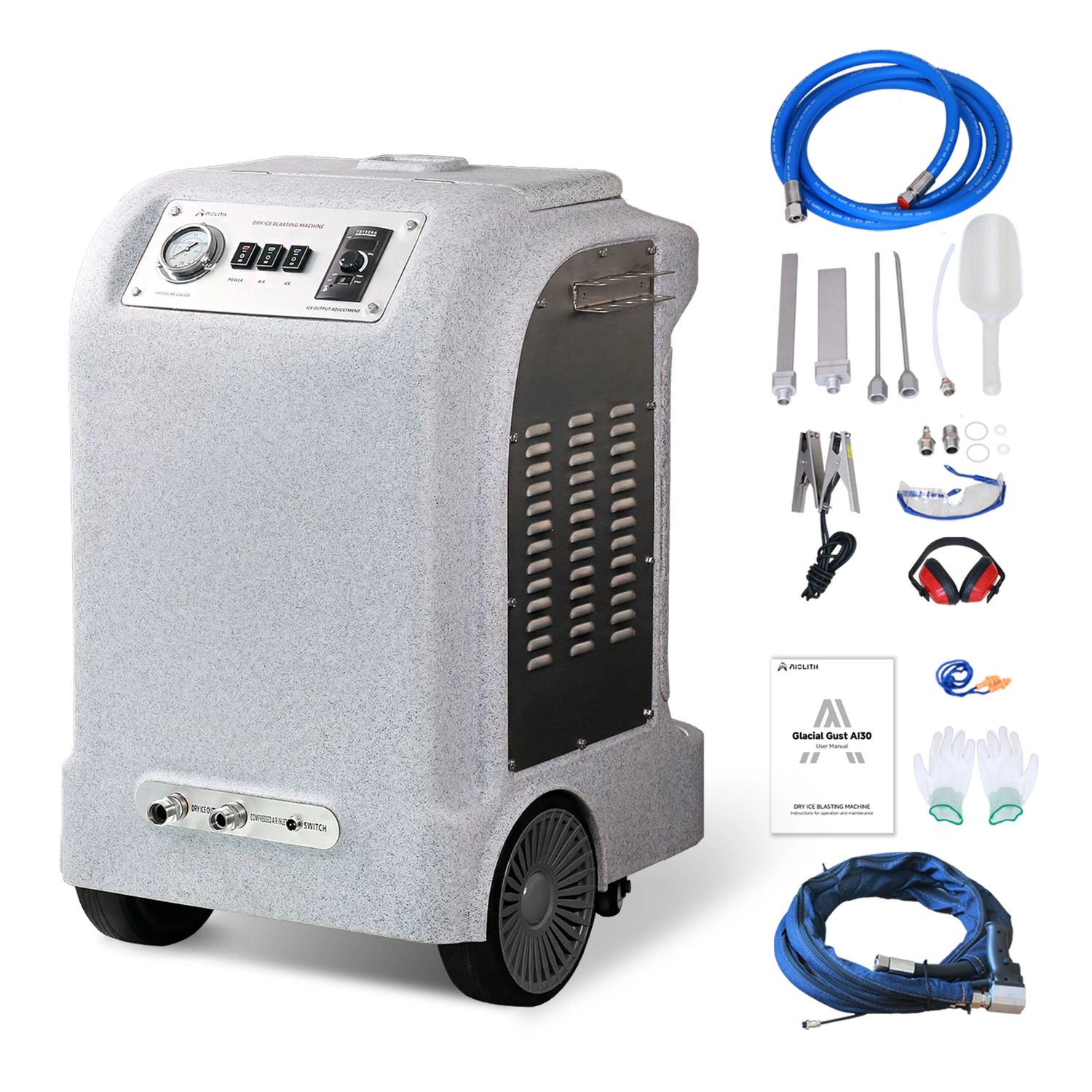7 Common Reasons Why Your Floor Is Still Dirty After You Mop and How Commercial Floor Scrubbers Solve Them
Share
Many facilities face the same frustration: floors appear dull or dirty even after mopping.
Traditional methods often spread dirt instead of removing it, leaving behind residue and moisture that attract more grime. Commercial floor scrubbers, however, provide a solution through deeper friction, consistent pressure, and efficient water recovery. Below, we explore why floors remain dirty after mopping and how scrubbers address these issues.

1. Dirty Water Spreads Contaminants
When mop water is reused, contaminants are redistributed rather than removed. The Environmental Protection Agency (EPA, 2021) emphasizes that dirty water diminishes sanitation and increases microbial spread. Scrubbers, in contrast, separate clean and dirty water to ensure consistent results.
2. Insufficient Friction
Mopping relies on surface contact, which often fails to dislodge stubborn grime. Rutala & Weber (2019) highlight that friction is key for removing microbial biofilms. Scrubbers use rotating brushes or pads that deliver stronger agitation, penetrating deeper layers of dirt.
3. Excess Moisture Left Behind
Mopping frequently leaves excess water that dries unevenly and attracts particles. The CDC (2019) warns that lingering dampness encourages bacterial regrowth. Commercial scrubbers extract wastewater immediately, leaving floors drier and safer.
4. Uneven Cleaning Patterns
Manual mopping often results in missed spots due to inconsistent strokes. Research by Otter et al. (2013) shows that uniform cleaning coverage improves hygiene. Scrubbers operate with systematic paths that ensure every section is treated evenly.
5. Residue from Cleaning Solutions
Too much solution creates sticky films that trap dirt. Kampf (2018) notes that overuse of chemicals can increase soil buildup. Scrubbers automatically dispense controlled amounts, preventing residue and preserving floor shine.
6. High Traffic and Rapid Recontamination
In busy facilities, mopped floors get dirty quickly as they stay wet longer. NHS (2021) stresses that drying speed is essential for hygiene. Scrubbers allow immediate reuse of floors due to faster drying, reducing downtime.
7. Floor Material Sensitivity
Different surfaces require tailored cleaning. Hardwood, tile, and vinyl all respond differently to water and pressure. Clark (2021) found that inappropriate cleaning methods accelerate wear. Scrubbers offer adjustable settings to match flooring needs safely.
Comparison Table: Mopping vs. Commercial Floor Scrubbing
| Aspect | Mopping | Commercial Scrubbing |
|---|---|---|
| Water Usage | Often excessive, reused water spreads dirt | Uses clean water, separates dirty water |
| Cleaning Depth | Limited to surface level | Strong agitation removes embedded grime |
| Drying Time | Slow, leaves moisture | Quick, efficient water recovery |
| Consistency | Manual effort leads to uneven coverage | Automated patterns ensure full coverage |
| Chemical Residue | Risk of sticky films | Controlled dispensing prevents residue |
| Suitability for High Traffic | Dirt returns quickly | Handles heavy use efficiently |
FAQs
Q1: Why does my floor still look dirty after mopping?
Mopping often spreads dirty water and leaves behind residue instead of fully removing soil.
Q2: How do commercial scrubbers improve cleaning?
They apply strong friction, use clean water consistently, and extract dirty water immediately.
Q3: Are scrubbers safe for all floor types?
Yes, most have adjustable settings for wood, vinyl, tile, and stone.
Q4: Do scrubbers reduce bacterial growth compared to mopping?
Yes, studies show that friction and quick drying reduce microbial survival (Rutala & Weber, 2019).
Q5: Is chemical use lower with scrubbers?
Yes, scrubbers dispense the right amount automatically, reducing chemical waste.
Conclusion
Floors that look dirty after mopping result from dirty water, poor friction, and excess moisture. Commercial floor scrubbers address these issues by combining mechanical action, efficient water recovery, and consistency. For facilities aiming to maintain spotless and hygienic floors, scrubbers provide a reliable solution.
References
- CDC. (2019). Cleaning and Disinfecting Your Facility. https://www.cdc.gov/hygiene/cleaning/index.html
- EPA. (2021). Cleaning vs. Disinfecting vs. Sanitizing. https://www.epa.gov/coronavirus/cleaning-and-disinfecting-your-home
- Otter, J. A., Yezli, S., & French, G. L. (2013). Evidence that cleaning reduces infection spread in hospitals. Journal of Hospital Infection, 85(2), 99–105. https://doi.org/10.1016/j.jhin.2013.04.007
- Rutala, W. A., & Weber, D. J. (2019). Best practices for disinfection of environmental surfaces. Am J Infect Control, 47, A96–A105. https://doi.org/10.1016/j.ajic.2019.01.014
- Kampf, G. (2018). Effect of frequent cleaning on microbial load. GMS Hygiene and Infection Control, 13. https://doi.org/10.3205/dgkh000307
- NHS. (2021). Prevent germs from spreading. https://www.nhs.uk/live-well/healthy-body/how-to-prevent-germs-from-spreading/
- Clark, B. (2021). Longevity of deep cleaning practices. Journal of Public Health Research, 10(2). https://doi.org/10.4081/jphr.2021.2345

